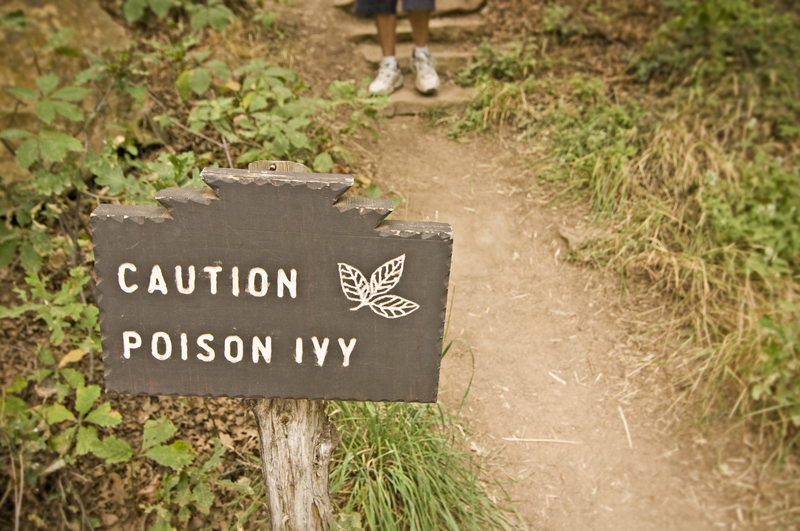Essential Gardening Tools Every Outdoor Enthusiast Should Own
Posted on 10/09/2025
Essential Gardening Tools Every Outdoor Enthusiast Should Own
For anyone who loves spending time outdoors and nurturing their garden, having the right gardening tools can make the difference between a chore and a delightful hobby. Whether you are a seasoned green thumb or just stepping into the world of horticulture, equipping yourself with high-quality, essential gardening tools is crucial. In this comprehensive guide, we'll cover the must-have tools for gardeners, ensuring you have everything you need for successful, enjoyable gardening.

Why The Right Gardening Tools Matter
Gardening is not just about planting seeds or trimming hedges; it's about creating a harmonious space where both plants and gardeners can thrive. The best garden tools not only make your tasks easier but also protect your plants from damage and yourself from potential injuries. With well-maintained, proper implements, you'll be more efficient, accurate, and inspired in your gardening efforts.
Main Benefits of Investing in Quality Gardening Tools
- Improves Efficiency: Allows you to complete tasks faster and with less effort.
- Reduces Physical Strain: Ergonomic designs help minimize fatigue and injury.
- Ensures Better Results: Precise tools mean healthier plants and a better-looking garden.
- Long-Term Savings: Durable garden equipment lasts longer, minimizing replacement costs.
The Must-Have Gardening Tools for Every Outdoor Enthusiast
1. Garden Gloves
Garden gloves are your first line of defense. While bare hands might offer a closer connection to the soil, gloves protect your skin from thorns, splinters, irritants, and blisters. Invest in several pairs tailored for different tasks:
- Heavy-duty leather gloves: For pruning roses and dealing with thorny bushes.
- Lightweight cotton gloves: Ideal for planting, potting, and light weeding in the summer.
- Waterproof gloves: Perfect for working in damp conditions or with moist soil.
Tip: Wash and dry your gloves regularly to extend their lifespan.
2. Hand Trowel
The garden hand trowel is an indispensable tool for planting, transplanting, weeding, and digging small holes. Look for a trowel with a comfortable grip and a sturdy stainless steel blade. Ergonomic handles reduce wrist fatigue and prevent slippage during use.
Garden hand trowels come in various shapes and sizes. Wide, scooped blades move more soil, while narrow blades are perfect for precision tasks like digging out weeds among closely spaced plants.
3. Pruning Shears (Secateurs)
Pruning shears are a must for shaping plants, trimming back perennials, harvesting vegetables, and removing dead or diseased stems. Choose a model with sharp blades, a comfortable grip, and a locking mechanism for safety. There are two primary types:
- Bypass pruners: Best for live stems; blades pass by each other for a clean cut.
- Anvil pruners: Ideal for dry, woody stems; a single blade closes onto a flat surface.
Sharpen your pruning shears regularly and clean them after each use to prevent the spread of plant diseases.
4. Garden Fork
The garden fork is perfect for loosening, turning, and aerating soil, especially in dense or compacted ground. With four sturdy tines, it helps incorporate compost, remove stones, and prepare beds for planting. Look for one with a strong, rust-resistant steel head and a cushioned, comfortable handle.
- Tip: Garden forks are also handy for lifting potatoes and other root vegetables without damaging them.
5. Spade or Shovel
No garden is complete without a trusty spade or shovel. Essential for digging holes, edging beds, moving soil, and transplanting shrubs, it's important to choose one suited to your height and the tasks at hand.
- Square spades: Better for edge work and slicing through soil.
- Round-point shovels: Great for digging and lifting.
Opt for models with steel blades and wooden or fiberglass handles for durability and comfort.
6. Garden Hoe
The garden hoe is indispensable for weeding, shaping soil, and creating furrows for seed planting. There are several types:
- Draw hoes: For chopping into soil and clearing weeds.
- Scuffle (Dutch) hoes: Glide through the soil to cut weeds below the surface.
- Warren hoes: Triangular blades best for digging narrow rows or trenches.
Choose a balanced, lightweight hoe that feels comfortable to use for extended periods.
7. Watering Can or Garden Hose
Watering is vital for any healthy garden. Depending on your setup, invest in a sturdy watering can or a high-quality garden hose with adjustable spray nozzles. Watering cans offer precise control for delicate seedlings or containers, while hoses are ideal for larger spaces.
- Plastic watering cans: Lightweight, affordable, but less durable.
- Galvanized steel cans: Long-lasting and classic, though heavier.
- Expandable hoses: Space-saving and less prone to tangling.
Ensure hoses reach all garden areas, and choose models with adjustable spray patterns for versatility.
8. Rake
Garden rakes are essential for clearing leaves, smoothing soil, and spreading mulch. Choose the right type based on your primary tasks:
- Leaf rake: Lightweight with flexible tines for gathering leaves and lawn debris.
- Bow rake: Strong, flat tines ideal for soil leveling, spreading mulch, and breaking up compacted earth.
Composite handles are lightweight, while wooden handles are sturdier and more traditional.
9. Wheelbarrow or Garden Cart
A sturdy wheelbarrow or garden cart is essential for transporting soil, mulch, compost, tools, and plants. Single-wheeled designs are easy to maneuver, while two-wheeled carts are more stable on uneven ground.
- Plastic models: Lightweight, rustproof, suitable for lighter loads.
- Steel models: Heavier, but ideal for tough jobs.
Keep the wheel(s) inflated and remove debris to prolong lifespan.
10. Garden Knife (Hori Hori)
The versatile garden knife, also known as a "hori hori," serves as a multi-purpose tool for digging, cutting, slicing, and planting. Marked blades double as measuring tools for planting bulbs and seeds at the right depth.
- Stainless steel blade: Offers durability and can handle tough soil and roots.
- Comfort grip: Wooden or rubberized handles offer control and comfort.
Always clean and dry your knife after use to prevent rusting and keep the blade sharp with a whetstone.
Advanced or Specialty Garden Tools for Enthusiasts
If you're looking to expand your garden tool kit, consider these specialty tools that help with specific tasks:
- Loppers: For cutting thick branches, offering more leverage than pruners.
- Garden scissors: Handy for harvesting herbs, flowers, and delicate vegetables.
- Soil testing kit: Ensures you understand and can optimize your soil health.
- Garden kneeler & seat: Reduces strain on knees and back during extended gardening sessions.
- Compost bin: Supports sustainable gardening by recycling plant and kitchen waste.
- Plant supports and ties: Staking young plants prevents bending and breakage.
- Hand cultivator: Loosens soil for aeration and weed removal around sensitive plants.
- Soaker hoses or drip irrigation: For efficient, low-maintenance watering of larger beds.
How to Choose The Best Gardening Tools for Your Garden
With so many options, picking the right tools can be overwhelming. Here are some key considerations:
Material Quality
- Stainless steel: Resistant to rust, stays sharp, and is easy to clean.
- Aluminum: Lightweight but not as durable.
- Carbon steel: Strong but susceptible to rust unless maintained.
Ergonomics
- Comfort grips: Choose handles that reduce strain and provide a non-slip hold.
- Tool weight: Lightweight tools are easier on your arms and back, but may be less durable for heavy-duty jobs.
- Length: Long-handled tools minimize bending and reaching, protecting your joints.
Durability
Invest in well-made gardening equipment from trusted manufacturers. Cheap tools often break mid-task, cause frustration, and ultimately cost you more in the long run.
Storage and Maintenance
Protect your investment by:
- Storing tools in a dry place: Prevents rust and handle decay.
- Regular cleaning: Removes soil and plant residue.
- Sharpening blades: Keeps pruners, knives, and hoes in optimal condition.

Time-Saving Gardening Tips for Every Outdoor Lover
- Keep tools organized: Use a pegboard, bucket, or tool bag for easy access and safe storage.
- Clean as you go: Quickly wipe down tools after each use to reduce maintenance.
- Mark tool handles: Use bright colors or tape so tools are easy to spot in the garden.
- Inspect before use: Check for loose parts or cracks before beginning any task.
Conclusion: Equip Yourself for Gardening Success
Gardening offers endless rewards for those willing to invest a bit of time, energy, and care. By selecting the right essential gardening tools--from gloves and trowels to pruning shears and wheelbarrows--you'll work smarter, not harder. Add specialized tools as your needs and experience grow. Remember, your garden's success starts with the tools you choose. Make informed, quality choices, maintain your equipment, and every outdoor enthusiast will reap the benefits of a flourishing garden for years to come.
Ready to dig, plant, and grow? Start building your essential gardening toolkit today and watch your outdoor paradise bloom!
Latest Posts
Gardening with Dogs: Tips for a Harmonious Backyard
Creating Masterpiece Gardens with Hedge Trimming Shapes and Techniques
Revitalize Your Neglected Garden: Fresh Start Ideas
Essential Gardening Tools Every Outdoor Enthusiast Should Own

